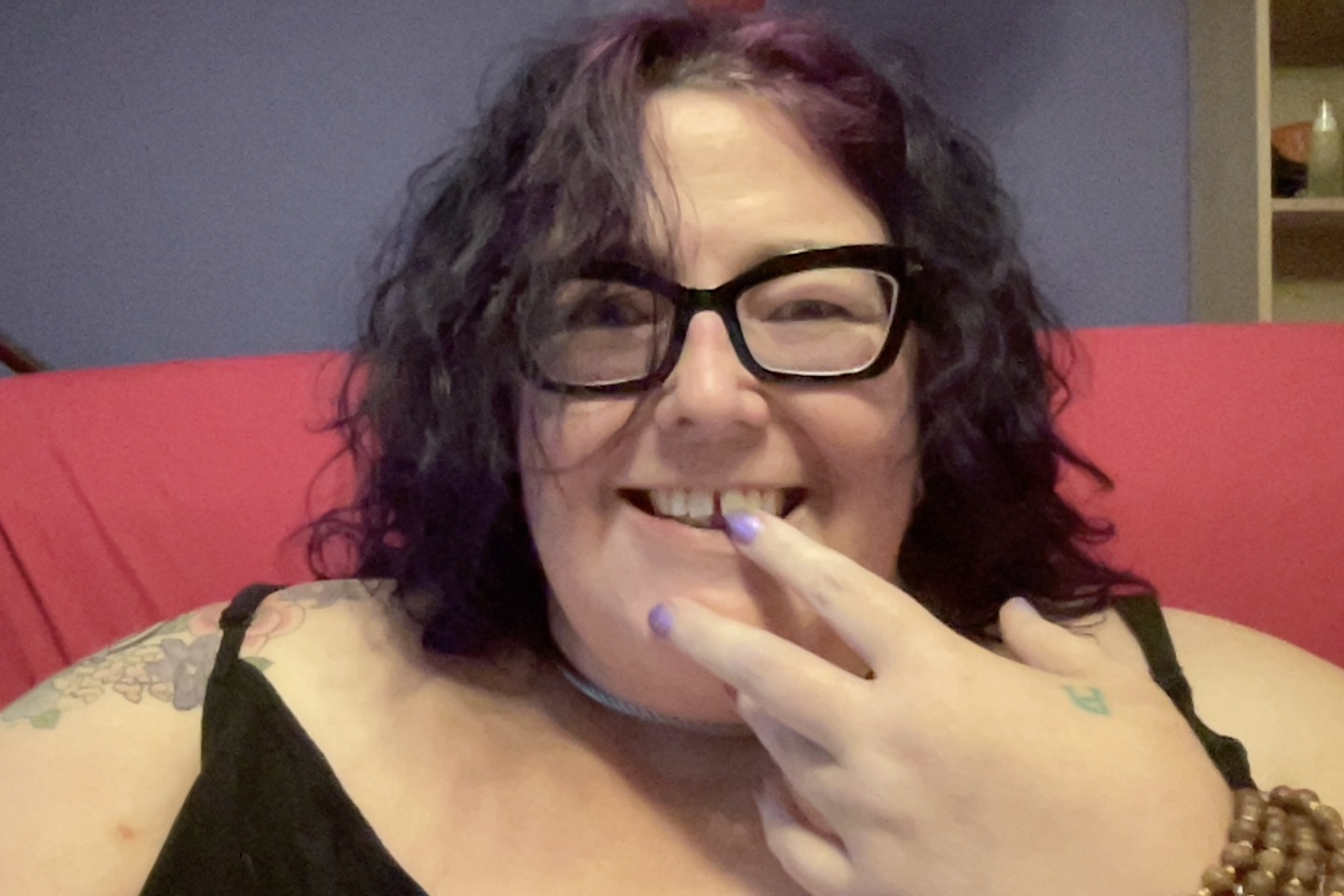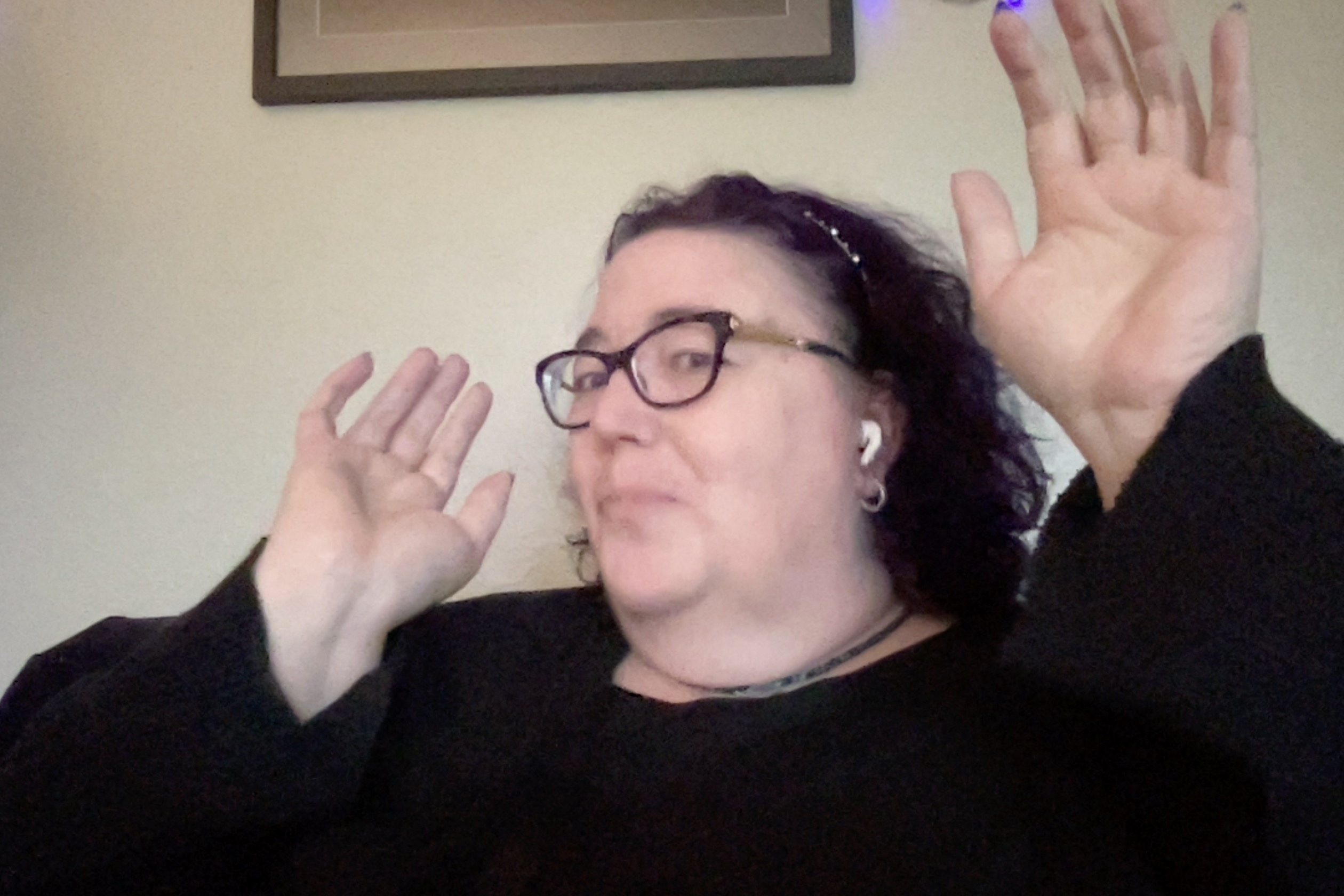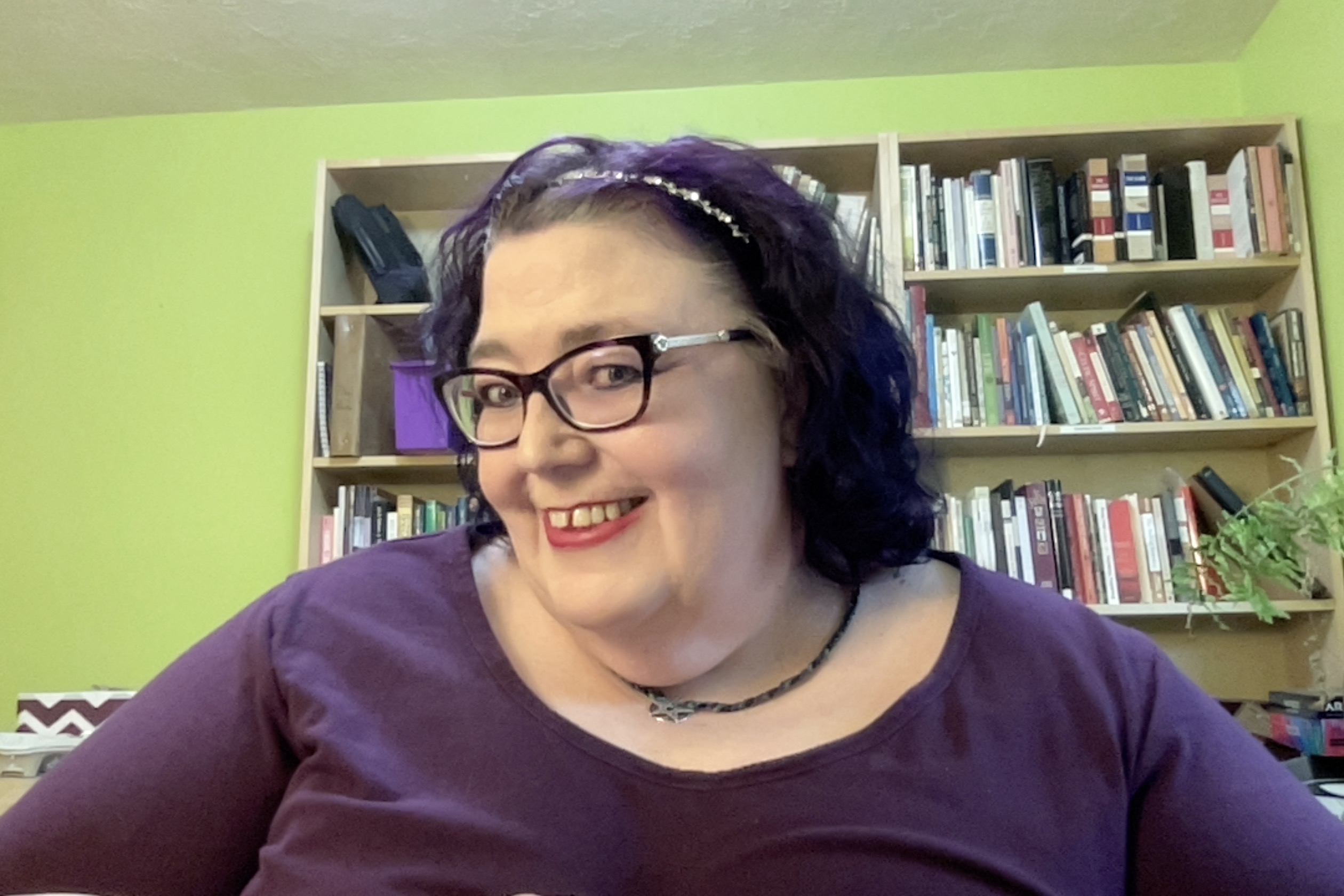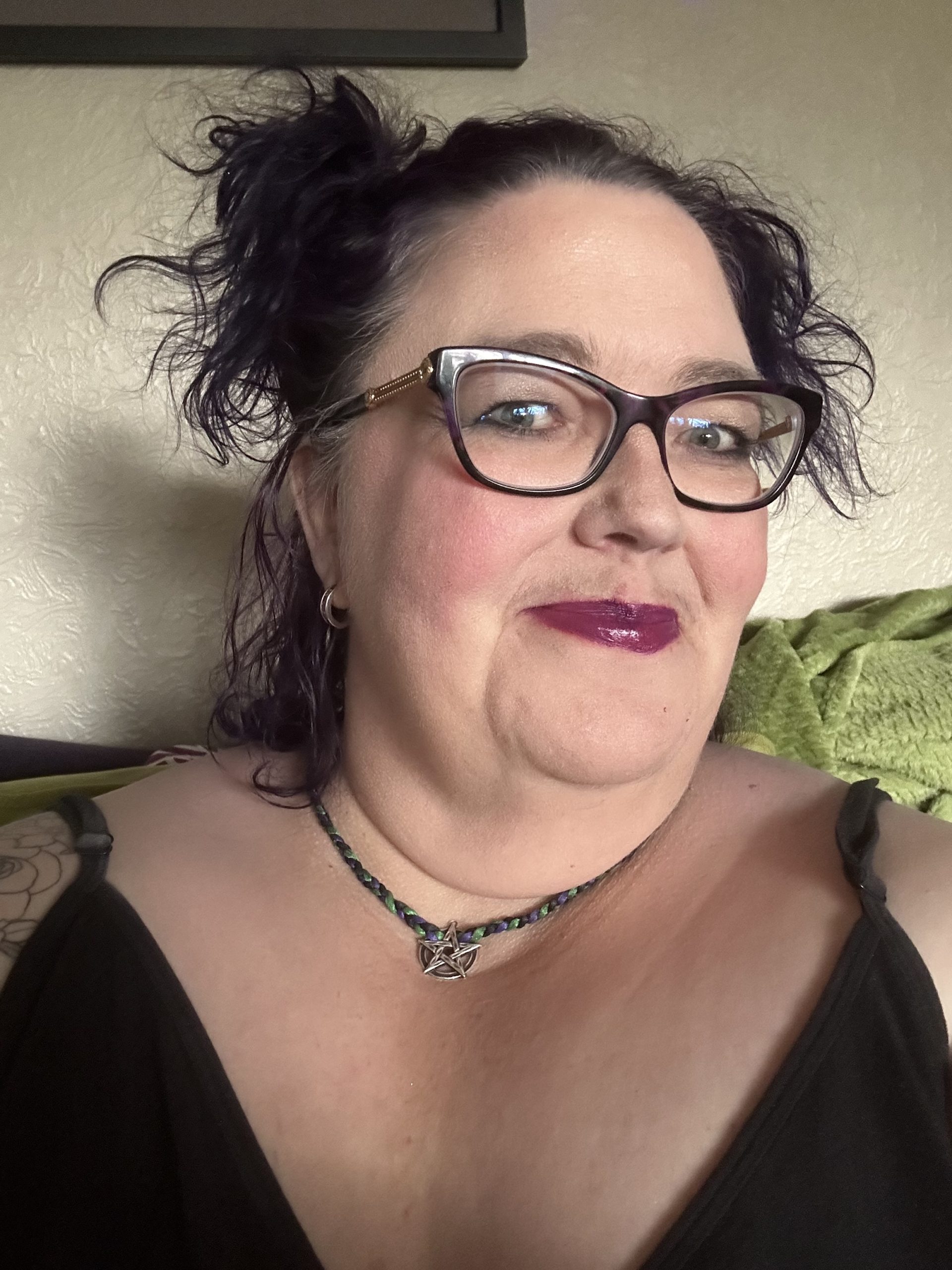I want to write here. To you, and not just to myself.
I’ve wanted to write.
I’ve wanted and wanted and wanted to write.
But ever since “A Tender Place,” I’ve been stuck. The things that are swirling and whirling, turning and churning in my life have felt too close, or too threatening to write about here or in social media. And they’re really just more of the same. What if no one thinks anything I have to say is worth anything? What if what I have to say really isn’t worth anything? What if what I want to write is just “self-indulgent” and “overly confessional,” and that’s why I’m not writing it?
“That is not necessarily bad. People do keep things to themselves sometimes, you know, Qira.”
But…
But I know in my bones that telling your own story, telling my story, will help someone somewhere. And I promised Brigid, the goddess of (among other things) bards and poets, of awen, inspiration, that I would tell my story. My real story, whether it was charming or terrifying or repetitive. That I would tell the true story, no matter what.
Not only that, after a revelatory conversation with my most excellent brother, I’ve decided to try out the idea that “Everything is probably going to be okay” when anxiety comes up. So far, this approach seems to be slowly and steadily changing my brain.
The last thing I want is to be misunderstood, and I’ve been so afraid of writing myself into a corner. But I think I just need to risk it. So here’s me writing about what I’ve not been writing about:
The Insidious “Diet and Exercise
I’ve not been writing about my ongoing voyage with Ozempic and how it’s affecting my behavior and feelings about food. I’d hate for people to think I’m advocating traditional methods of intentional weight loss. I’m not. I’m just not.
- “Diet and exercise,” the methods prescribed for millions of fat people by millions of medical practitioners who know that they don’t work…don’t work. And even when people on the semaglutides and liraglutides who are seeing the results for which they hope, it doesn’t really count unless they can point to “diet and exercise” as the real source of their “success.”
- Remember, over 85%+ of the time, within five years of trying other methods to lose weight/get smaller, people gain back the weight they’ve lost.
- And 40% of those people–and oh great gods, of whom I am one!–gain back what they’ve lost and more.
- Advising “diet and exercise” is both ineffective and, I suspect, a Calvinist-style weapon. Like, even though we have this drug that is helping, I should STILL suffer in all the ways that I did for my years of restriction and dieting. It would be different if someone said, “Making choices that make your body feel better, stronger, and happier is good for everyone,” but that’s not usually what happens. It just gets tacked onto how to use these drugs. “Along with a program of diet and exercise.”
Where’s the Gotcha I Deserve?
We have at least six years of public data on GLP-1’s (the class of drugs Ozempic is in), and things look pretty good, but do I worry? Of course. Where is the “gotcha” going to be?
When I feel nauseated from eating a little more than my belly wanted, I wonder if it’s the thin edge of the wedge of unwanted effects. There are no “side” effects of drugs, really. There are the effects we want and the effects we don’t. (Am I just wondering if I’m getting the suffering I “deserve”)
This morning, I ate my potato salad while playing Connections and the Wordle, paying attention to my eating exactly not at all. As a result, I ate probably three or four more bites than my belly wanted, and I feel queasy. Not terrible. Not vomitrocious, as I would have said as a kid, but queasy.
What if, I wonder, what if it gets worse? What if I have effects so terrible that I can’t stay on a GLP-1? What if…? What if….? What if…?
Mandatory Suffering
I mean, maybe this whole time is going to be a sea change.
For some reason, the range of possibilities of widespread change made me think of the “advent” of aspirin (not that people hadn’t been using willow bark for centuries…) and the social contraversy accompanying it. There was a powerful Christian backlash when aspirin became broadly used as an analgesic. The idea there was that suffering is sent for our good, and we should embrace it on some level. First of all, hogwash. Second of all, hello, laudanum?
Like, are we supposed to only accept the help that comes with other terrible consequences? Are we only allowed to be afforded dignity if we’re “good fatties” who suffer and embrace the “virtues” (ugh) of food restriction and super-regular, weight-loss-focused exercise? Are we only worth the esteem of ourselves and others if we seriously consider or go through extreme surgeries? If we’re not restricting our food in a constant (and futile!) search for a smaller body, do we deserve any respect?
I realize just now, that part of my question is, “Is it okay to be taking a ‘short cut’?” Like, what if this drug works, and I lose enough weight that my life is easier on the daily? What if it works well enough that I can come back do the kinds of movement–swimming, yoga, walking in the woods–I most love? What then? What would it mean? Of course, hidden in that question is the feeling that I would have gotten away with something, done some sleight-of-hand that isn’t “fair” or “virtuous” or even “right.”
Great goddesses of the Great Below, I am neurotic! (Y’all may have noticed.)
All Kinds of Hope
Am I naïve to think there is any reason for that hope? To think there is any hope for me? What does it mean to have hope for me? Why am I even framing the question in terms of “hope for me?” Are my questions about my own hope rooted in fat hatred, the belief that I just have to keep suffering because I deserve it? (see neurosis, above)
So is there hope for me? What do I mean by hope?
I hope to be able to navigate the world better, to be less afraid of mobility challenges (like falling and not being up to get all the way up). I hope to be able to walk up and down whatever stairs present themselves in the normal course of life. I hope to feel the winds over the Willamette and Columbia as I sit on their beaches.I even hope to be able to swim in the river and get out again. (I’ll let you know why that says, “even” in another post.)
Seeing whales.
I have other hopes I mentioned in, “A Tender Place,” but for now, the ones above will do.
There are also the hopes that seem really and truly out of reach forever: Hiking in the woods up and down even gentle hills (my left knee is cringing at the thought of it), swimming in the ocean, having one seat on an airplane and not two, walking through airports unassisted, going on a resort vacation with Julie. (Better yet, going to Victoria, BC in the summer, a dream of many decades.)
Seeing more whales.
These hopes feel beyond the pale.
Why? Even if all those hopes are unrealized, why do I feel as though to hold them in my heart is some kind of affront? As though I, having “allowed myself” to be so fat, don’t deserve to dream these dreams. To hope these hopes.
I think I’m going to hope these hopes anyway.
Thanks for reading what I’m not writing.
Oh PS and FYI — I’m still committed to not listing weight loss numbers. And I still think I may talk about sizes or my felt sense of my body. Just sayin’.




I think that hope is beautiful and precious. I have my own hopes; to visit Europe, to walk in a garden in the sun, to dance again. May all our dearest hopes be realized!
Oh yes. I’d love to visit my mother in Italy, to visit the Japanese Garden and the International Rose Test Garden… Yes.
You have always been a beautiful girl. You will now be a beautiful, healthy woman. Your not writing amazes me. I love you and your beautiful brother. Keep not writing! ❤️😘🙏🏻
Thank you, Kathy, for your kind words.
I have to also add — what is health? Who gets to decide? If I have deep happiness, love, fulfillment, my heart beats for me every day, my lungs breathe for me every day… what is health?
Who counts as “healthy”? And how is health a virtue in our culture? Should it be?
I’m so glad you didn’t write this piece. This is a post full of struggle and conflict, and hope, and documentation of a journey. I’m very happy you chose to share it with us. When wondering about the gotchas, remember the Wu Wei. Non-action is also itself an action. And may there then be many whales in your future.
Dear one — how lovely to “hear your voice!” I have been thinking a LOT about Wu Wei lately, and of you, my Daoist friend Pooh.
I am finding that my way of non-doing/non-action has been to simply respond to life’s arising… moving with the currents of Earth and my place in it. Not to plan so much, not to worry so much about the future, not to get lost in considerations of the “gotchas.” Thank you so much for this affirming comment!
Dear dear Catharine,
I felt tears in my eyes as I read your hopes. They remind me of my own hopes. I say, your hopes are precious, and beautiful like you. I love your courage to dream!
My dear Karly – Thank you so much for what you’ve written here. Your tenderness with yourself and with others always moves right through me, leaving flowers of hope it it wake.